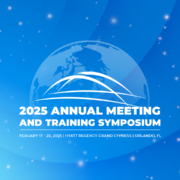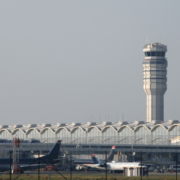Sally Greenberg presented product safety keynote address at ICPHSO annual conference
Sally Greenberg, the National Consumers League (NCL) CEO, presented the following product safety principles on February 19, 2025, as a keynote speaker at the International Consumer Product Health and Safety Organization (ICPHSO) 2025 Annual Meeting and Training Symposium
Keynote Address to the ICPHSO
Orlando, Florida
800 attendees
Good afternoon to everyone. It’s great to be here at this wonderful conference at what is undoubtedly one of the most challenging times for product safety. I also want to introduce our newest NCL employee, Daniel Greene, who is fresh off Capitol Hill and has worked on product safety issues as a committee staffer and staffer for members of consumer protection committees. We’re so lucky to have Daniel joining our team.
I’m especially glad to be helping ICPSHO get back to your roots. You haven’t had anyone this short speaking at this podium since Ann Brown was Chairman of CPSC back in the 1990s.
During Chairman Brown’s tenure, I met some of the heroic people who put the CPSC on the map, including your CEO Mark Schoem, his brother Alan Schoem, and Pam Gilbert, my close colleague and a member of my Board. Pam served as Executive Director of CPSC during Chairman Brown’s entire tenure.
We are gathered in this room even as we approach issues with many different perspectives, but I like to believe we’re here because we all care about making products safer. Companies have much to do with the ecosystem that has enabled far safer products for consumers – the voluntary standard on baby walkers and the fact that hair dryers don’t electrocute people anymore are all because of industry initiatives. We very much welcome the relationships we’ve built with Amazon, Proctor and Gamble, and so many others here today. The system works best when we all have a common goal of ensuring safer products.
I want to share some stories from my 3 decades of work as a consumer advocate. I was hired in 1998 in the DC office of Consumer Reports magazine, handling both auto safety and product safety. My mentor was Dr. David Pittle, a mechanical engineer PhD serving as technical director in the Yonkers NY headquarters of Consumer Reports. David was a Commissioner at the CPSC under four Presidents. I knew next to nothing about product safety, but David and soon thereafter Bob Adler, who worked for David at CPSC and was acting CPSC chair, taught me some basic principles that guide my work today.
Among those are:
- Don’t blame consumers if there’s a pattern of injury and a lot of people, especially children, are getting injured using a product. The problem is likely with the product, not the people.
- It’s not misuse when people act in utterly human ways or surprise, surprise, fail to follow complex, unreasonable instructions.
- If there’s technology to redesign a product to prevent injury and that technology can be adopted for a reasonable cost, it should be done, either by the manufacturer or, if they won’t act, through a required safety standard.
- Everyone in the industry has to comply, so no one in the industry competes for business by reducing safety protections.
- Safety should not be just for those who can afford to pay for it. Safety should be available and standard for all consumers.
- Consumers may claim to dislike the government, but they universally believe that government agencies have reviewed every product on the store shelves and believe everything they buy has been vetted for safety.
- Manufacturers and regulators, you cannot sticker over safety problems or put a warning label on an inherently unsafe product. Consumers have no problem with warning labels, but they are not a substitute for addressing inherent safety issues.
- Education campaigns are not terribly effective if there’s an inherent safety problem with a product. Seat belts are a case in point. NHTSA ran a multi-year, multi-million-dollar campaign to convince consumers to use seatbelts. After spending millions of dollars and years on the campaign, the rate of seatbelt use rose from about 11 percent to 14 percent. There was no meaningful change until states passed laws requiring the wearing of seat belts. Current use is 91% — saving tens of thousands of lives.
- Anyone who thinks that the market will sort out dangerous products is living in a dream world. That is why we need the CPSC and other consumer safety organizations.
- Capitalism works but not without regulation. The most prosperous market economies also have extensive regulatory systems. We need rules of the road to promote competition and rein in the tendency to put profits over preventing injuries to keep the public safe.
So, onto a few stories.
When I was hired at Consumer Reports in 1998, one crisis was brewing, and two were about to happen. The first was that Consumer Reports magazine was being sued for rating two SUVs - an Isuzu Trooper and a Suzuki Samurai- as not acceptable because they, according to tests, are prone to rollover.
CR had no one working in the DC office on auto safety or product safety. While our litigators prepared for trial, I was hired to work with Congress, consumer organizations, the National Highway Traffic Safety Administration, and automakers to advocate for CR’s interest – on behalf of consumers – in order to require that NHTSA test vehicles for stability.
Well, let me tell you, it was a hard sell. I used to say I was the loneliest lobbyist in Washington. I walked the halls of Congress visiting members with folders filled with graphs, data about accidents and deaths, and diagrams describing the propensity of SUVs to roll over because of a higher center of gravity and how to test and correct for the problem. Mostly I’d get a pat on the back and good luck even from friends. Congressman Ed Markey, who was in the House at the time, always welcomed me, but suffice it to say Newt Gingrich was Speaker of the House: They would tell me, “Good luck, Sally, getting anything pro-consumer done in this Congress. No one is interested in safety.” That was 1998. By the way, Consumer Reports went to trial and won, except for one or two minor matters. I should add that neither Isuzu nor Suzuki is in business today in the U.S.
But things changed fast.
Crisis number two, in 1999, Ford Explorers with Firestone tires were detrending while driving at high speeds.
An investigative reporter at a Houston TV station started doing the math – hundreds of people were getting injured or killed when these SUVs lost tire treads, flipped over, and killed occupants. Panic increased exponentially because the garages in the House and Senate office buildings were filled with Ford Explorers.
There was a feeding frenzy of Congressional hearings – and this time, Congressman Markey (now Senator from Massachusetts) called me and said Sally, let’s get the safety provisions into the bill now that Congress realizes how very important safety actually is – and we saw the very rapid passage of the TREAD Act of 2000, The Act set new regulations on tire quality and auto design. Firestone and Ford were forced to recall and redesign both tires and vehicles. And guess what? Consumer Reports’ goal to require that NHTSA test vehicles for stability was written into the bill – showing that even lonely lobbyists sometimes win. Once automakers knew their vehicles were going to be tested for stability, they managed to develop technology to prevent rollovers – known today as Electronic Stability Control. That has saved thousands of lives. Also, do you know that icon you see when one of your car tire pressure is low? That came out of the TREAD Act. We haven’t had a tire detreading problem since.
My next work crisis involved the CPSC. Before I tell that story, since most of us here today work with Commission so closely, I’d like to take a moment to recall the findings of the bipartisan 1968 National Commission on Product Safety – because it’s relevant to the CPSC saga I’m about to talk about.
This is a largely forgotten but very important study because it was the precursor that led to the formation of the CPSC. Among the findings was this: “There is no justification for exposing an entire populace to risks of injury or death, which are not necessary, and which are not apparent to all. Such hazards must be controlled or limited not at the option of the producer but as a matter of right to the consumer.”
In 1968, at the time of the Commission’s report, 20 million Americans were getting injured each year as a result of incidents connected with consumer products. 30,000 died. 110,000 were permanently disabled. The annual cost to the nation of product-related injuries exceeded five and a half billion dollars.
The Commission had identified a perilous race to the bottom. Safety took a back seat to profit. I was struck by the examples in the report:
- Valves that substantially reduced the risk of aerosol can explosions were not installed because industry saved three-and-a-half cents per can.
- Pressure tests to reduce the risk of soda bottle explosions were not performed, which saved one-fifth of one cent per bottle.
- Magnetic latches on refrigerators, which prevent entrapment, were not installed.
Nearly five hundred million dollars – or two percent – of all public health expenditures were attributed to product hazards.
The Congressional study recommended the formation of the CPSC, and Congress fulfilled the request in 1972. Richard Nixon, a Republican president, signed the bill into law.
Before I tell you about crisis #3, I want to tell you a story that proves that humility is an important thing to experience. While I was working for Consumer Reports, the magazine sent a gift out to new subscribers that included a small flashlight. Well, the flashlight was defective. When turned on, within a matter of minutes, it overheated, and some consumers reported to us that it even caught fire. Guess what? We had to conduct a recall. And I was in charge of the recall. So, my first call was to Marc Schoem at CPSC, who is now your Executive Director.
I had known Marc for years, but not in this context. He was by the book 100%. He insisted we follow the protocol of every other company, do a press release, admit fault, recall the flashlights, provide compensation, and warn the public. Let me just say he wasn’t warm and fuzzy. It was the right thing, and we did everything Mark told us we had to do. So, to any company that has had a recall, I feel your pain. The lesson for us was even Consumer Reports screws up from time to time; even CR can end up with a product we didn’t make but gave away with a defect. You must report it as soon as you discover the problem and work with CPSC staff and experts to get the word out to the public and take all the necessary steps. I was actually very glad to have Marc Shoem there to tell us how to do the right thing.
Now, back to my third crisis. In 2000, President George W Bush nominated CPSC Commissioner Mary Sheila Gall to become chairman of the Commission. Consumer advocates were concerned because Commissioner Gall had a record of blaming parents when there was a pattern of injury from products that harmed children. She also repeatedly referred to the CPSC as “The Nanny State,” and when kids chewed on zippers on the seams of baby walkers and lost baby teeth, she opined that, well, they were just baby teeth. We felt she fundamentally misunderstood the mission of the CPSC, which was not to blame consumers when there was a pattern of injury but to fix the product. Despite all this, she would have been confirmed by the Senate to chair the Commission, but the Republicans lost their majority, and her nomination failed to move to the full Senate.
Fast forward to today, I think the 1968 Commission would be very pleased with the CPSC’s record. This small agency with a large mission has helped spur a 43 percent decline in residential fires, a 47 percent decrease in fire deaths, and a 41 percent reduction in fire injuries. Child poisoning has decreased by 80 percent. Bicycle injuries dropped by 35 percent. Deaths from refrigerator door entrapments and garage door incidents have been virtually eliminated. Crib deaths have plummeted by 80 percent. Injuries associated with baby walkers have been slashed by 88 percent. Pool and pool equipment injury rates have decreased by 55 percent.
We should celebrate these successes. But we cannot rest on our laurels.
Falls, fires, poisoning, and suffocation remain persistently high, accounting for four out of five deaths. Everyday product categories – such as stairs, ramps, beds, pillows, chairs, exercise equipment, bathtubs, and bicycles – are frequently involved. The young and the elderly are particularly vulnerable. Product safety hazards remain a present threat.
This brings me to the very frustrating matter of table saw safety, something I’ve been working on since 2008. Table saws cause roughly 54,000 medically treated injuries and often very gruesome injuries every year. There’s technology to make them completely safe. It has been working for 20 years in safely designed saws, but the industry has put up fierce resistance to making this technology standard on all saws, primarily for cost reasons. They don’t want to pay to have their table saws reengineered and object to paying the inventor for his patents on the safety technology. The other thing industry members have been known to do is to get Congress to pass a law saying that the CPSC cannot work on making their products safer, which essentially bans the agency from working on gas generators or table saws, which is outrageous in my view. That is why we have a safety agency. By the way, the inventor of safety technology started his own company, SawStop, and 250,000 of these saws are in circulation. Shop classes buy them, and anyone who cares about their fingers should absolutely invest in a safe saw because it takes only a fraction of a second to have an accident. I know because we brought many table saw victims to town and their injuries are horrific. Today, we are closer than ever to having a mandatory standard thanks to former Chairman Alex Hoehn Saric and the incredible unsung work of Engineer Caroleen Paul at CPSC. But under this new administration, it won’t happen. So sadly, table saws continue to inflict gruesome injuries every day.
In 1994, Automotive News wrote an editorial that is my favorite of all time. It said this:
“All safety-related devices should become standard equipment. It’s a moral decision. When the choice becomes profit vs. lives, the decision should be simple.” I wrote a blog about it on my website.
Should this principle apply to the table saw industry? I certainly think so. If anyone wants to know more, I’ve written about this extensively on our website, nclnet.org
Moving on to where we are today. E-Commerce presents a huge product safety challenge. In recent years, a new pipeline of products has opened, flooding the market with dangerous and hazardous products. I want to thank Amazon for trying to find a resolution alongside consumer advocates to find a way to prevent the sale of products that are under recall.
E-commerce sales exceeded $1.1 trillion in 2023. That’s over fifteen percent of total retail sales that year.
Consumers understandably assume that products bought online are just as safe as products bought at a store. Far too often, that’s not the case.
My last several pitches are these three:
First, funding for the chronically underfunded CPSC as e-commerce grows each year. CPSC has a massive workload with jurisdiction over roughly 15,000 product types. Despite a request for an increase, its budget was cut in 2024 to $150 million, far and away the smallest of the federal health and safety agencies. FDA’s is 44 times that of CPSC; their increase is more than CPSC’s total request. NHTSA has more than 7 times that of CPSC
No agency has broader jurisdiction than CPSC. But again, in this environment, I’m not under any illusions that will happen.
Second, 6B presents a problem unique to the CPSC. CPSC must run information disclosures past manufacturers (and private labelers) and give them 15 days’ advance notice to comment on the fairness and accuracy of information. Then, if a firm protests, CPSC must take “reasonable steps” to determine that information release is fair and accurate. Then, the agency must give a firm no less than 5 days’ additional notice to permit a lawsuit challenging the information release. Now, 50 years after the enactment of 6(b), CPSC remains the only agency that operates under 6(b) restrictions. Not FTC, OSHA, EPA, NHTSA, CFTC, or any other regulatory agency. This imposes substantial costs and delays in alerting the public to safety hazards. When I last checked, the average time to process requests under 6(b) was roughly 4 times as long as processing non 6(b) requests—hundreds of thousands of dollars in extra costs.
We believe that someday, in product safety heaven, section 6B will be repealed, and the CPSC will not be forced to expend extra funds it can ill afford, and consumers will be informed promptly without undue delay about product safety hazards.
And finally, I have what I call a modest proposal. I work with other federal agencies, including the FDA. In 2007, a group of diverse stakeholders founded an entity called the Alliance for a Stronger FDA. Today, the Alliance unites a broad coalition of 150 consumer and patient groups, biomedical research advocates, health professional societies, trade groups, and many food and drug companies. The Alliance advocates for increased budget authority (BA) appropriations to support the FDA and educates policymakers, the media, and the public on the FDA’s mission and responsibilities. The credibility of the Alliance is based upon the breadth of its membership and the robust support of the FDA by Congress, policymakers, and the public.
For those in this room, consider forming the Alliance for a Stronger CPSC. The agency’s funding is often compromised unless a crisis emerges. The Alliance today has an especially important voice as we see the slashing of budgets and dismissal of our federal workforce that protects safety and health in the name of cutting government waste.
The Alliance for a Stronger FDA is speaking out with one voice about those issues right now, and the fact that it represents such a broad constituency speaks volumes and can reach every congressional district.
Thank you all for what you do every day to protect consumers and make wonderful products. I’m very honored that you invited me to present the Keynote today, and I look forward to your questions.
###
About the National Consumers League (NCL)
The National Consumers League, founded in 1899, is America’s pioneer consumer organization. Our mission is to protect and promote social and economic justice for consumers and workers in the United States and abroad. For more information, visit www.nclnet.org.

























